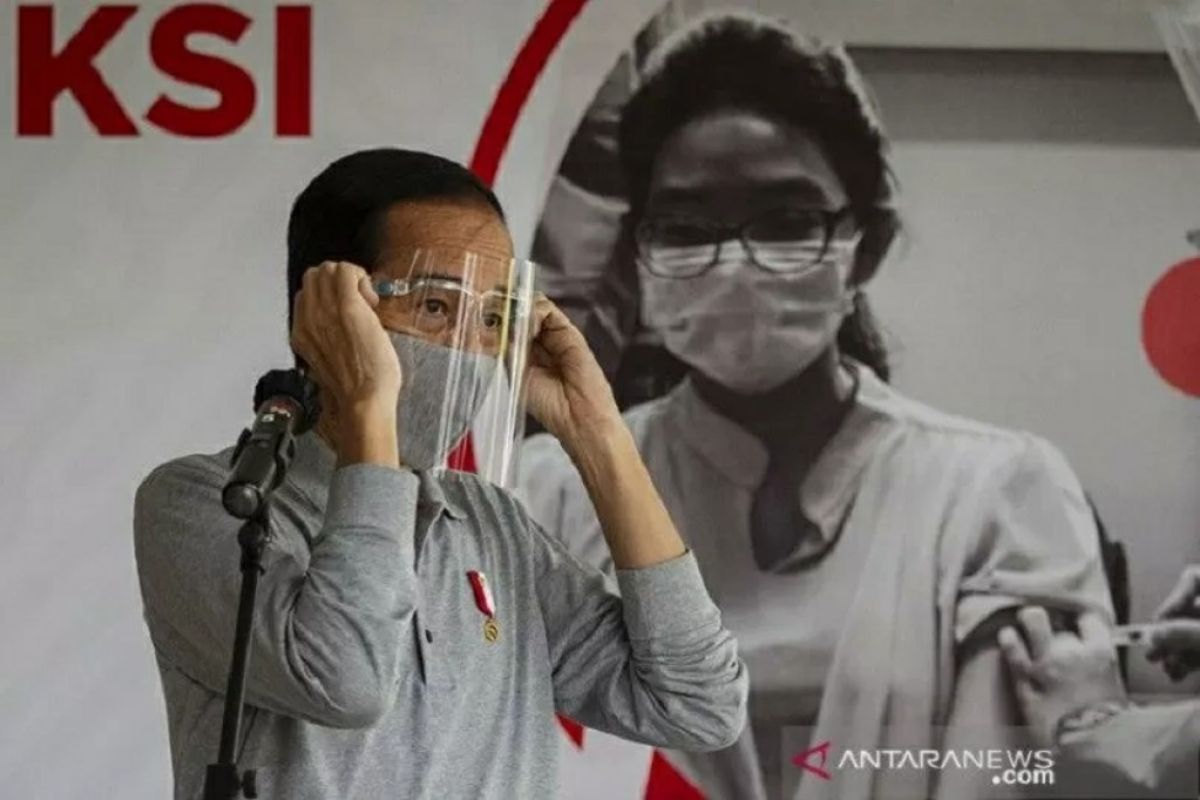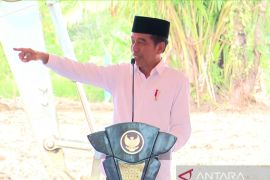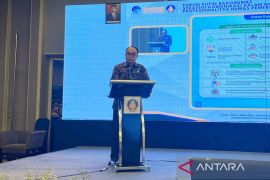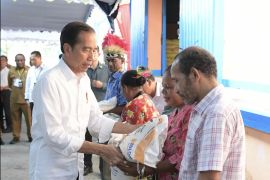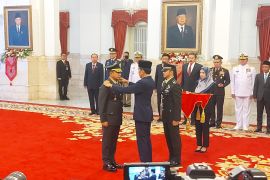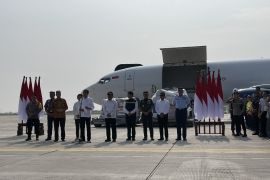In connection with family and office clusters, we feel safe at home and office, so we forget to implement preventive measures as mandated by health protocolsJakarta (ANTARA) - President Joko Widodo (Jokowi) renewed calls for his Indonesia Onward Cabinet's members to adopt requisite measures to halt the spread of the coronavirus disease (COVID-19) emerging from office, family, and regional election clusters.
"Be cautious of office, family, and, later, regional election clusters of COVID-19. Please repeatedly remind about this aspect," President Jokowi stated at a cabinet meeting on handling health and economic recovery issues to strengthen reformation here on Monday.
Speaking at the meeting, with attendees also comprising Vice President Ma'ruf Amin and National Disaster Mitigation Agency (BNPB) Head Doni Monardo, Jokowi affirmed that COVID-19-related prevention and mitigation efforts primarily targeted public places.
"However, we forget about the clusters of the novel coronavirus disease that I have informed about. We must be careful and cautious about the clusters," he told cabinet members at the meeting held at the State Palace.
Jokowi attributed office and family clusters to being partly responsible for the spread of COVID-19 among members of communities since the people may have felt a sense of safety and hence relaxed the application of COVID-19 precautionary measures.
"In connection with family and office clusters, we feel safe at home and office, so we forget to implement preventive measures as mandated by health protocols," President Jokowi pointed out.
In preventing the spread of the COVID-19 pandemic during the convening of this year's simultaneous regional elections, President Jokowi ordered Home Minister Tito Karnavian and National Police Chief Gen. Idham Azis to take strict actions.
Meanwhile, Head of the Jakarta Provincial Government's Health Office Widyastuti revealed earlier that the spike in new confirmed cases of COVID-19 in the country's capital city was mostly observed in settlement and office clusters.
In Bogor, West Java Province, family clusters became the key contributor to new cases in the city, Bogor Mayor Bima Arya Sugiarto noted, adding that as of Aug 30, a total of 48 family clusters, with 189 confirmed cases, had come to light.
The Indonesian Medical Association (IDI) reported several violations of health protocols during the registration processes of candidates contesting for this year's regional elections on Sept 4-6.
The violations were observed in cities and districts, such as Medan in North Sumatra, Solo in Central Java, Karawang District in West Java, and Surabaya in East Java, where people had thronged to demonstrate support for their candidates by vehicle in a motorcade.
Coronavirus infections initially arose in the Chinese city of Wuhan at the end of 2019, while the Indonesian government officially declared the country's first confirmed cases on March 2, 2020.
As of Sunday, the number of confirmed COVID-19 cases in the country had reached 194,109, of which 138,575 patients had recovered, while 8,025 others had succumbed to the disease
Coronavirus infections have spread to 34 provinces across Indonesia, with high number of confirmed cases being found in the provinces of the Special Capital Territory of Jakarta, reaching 46,333; followed by 35,634 cases in East Java, 15,351 cases in Central Java, 12,684 cases in South Sulawesi, and 12,505 cases in West Java.
Related news: Government lends top priority to tackling health issues: President
Related news: Lest local elections lead to new COVID-19 clusters: MPR Chairman
EDITED BY INE
Translator: Desca LN, Rahmad Nasution
Editor: Fardah Assegaf
Copyright © ANTARA 2020
